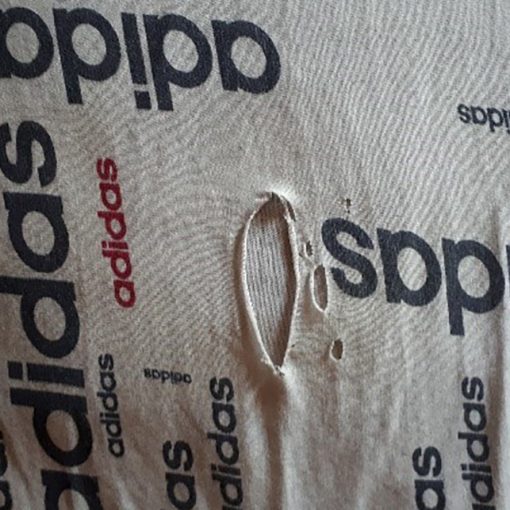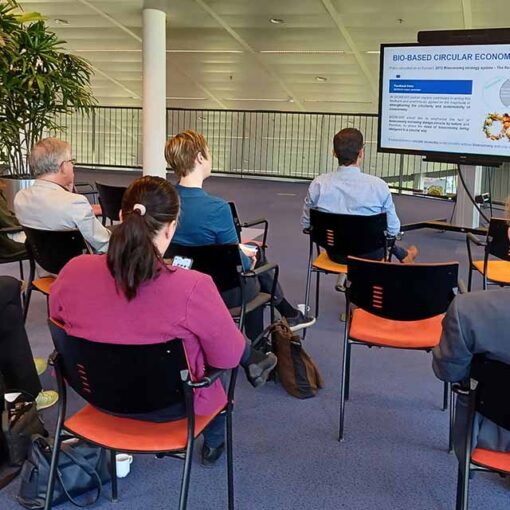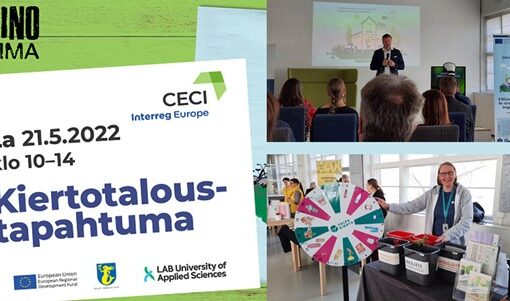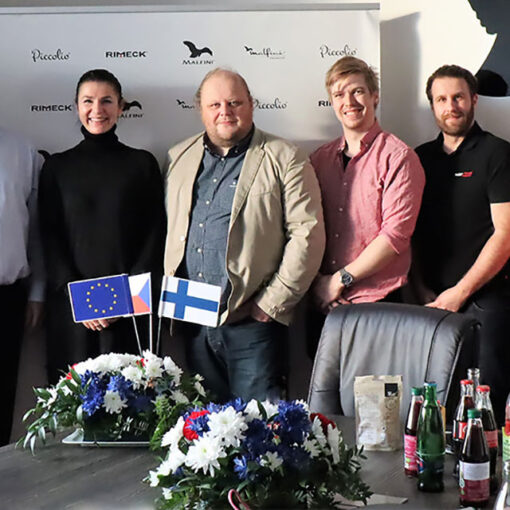Europe has high ambitions in nature restoration. The European Union’s new restoration law aims to support urban nature restoration, that is seen as necessary for coping with climate change and supporting biodiversity (Proposal for a REGULATION OF THE EUROPEAN PARLIAMENT AND OF THE COUNCIL on nature restoration COM/2022/304 final). The law proposal has been discussed and amended over the past year, and the decisive and dramatically close vote in the European Parliament was held in July 2023 (Liboreiro 2023; Liboreiro & Zsíros 2023).
Several cities are already seeing the importance and benefits of urban nature restoration. The event “Rethinking local policies – Bringing back nature to the city” brought together nearly 200 European policymakers and experts 31.5.-1.6.2023 in Ghent, Belgium. It was organized by the Interreg Europe Policy Learning Platform. The event consisted of presentations of inspiring examples of policy implementation and practice from around Europe. In addition to the exchange in the meeting venue, the City of Ghent hosted site visits to show how nature has been brought into the city.
Green areas in the City of Ghent
According to Tom Beyaert from the Department of Environment at the City of Ghent, the city has committed to support a recreational green structure where sufficient quantity of greenery is aimed to be guaranteed for all citizens (Beyaert 2023). Based on this, all citizens should have access to “Green poles”, which are green areas of minimum 100 ha located less than 5 km from their home. Furthermore, “Local parks”, green spaces of minimum 1 ha (or 10 m2/inhabitant) providing recreational opportunities for different target groups are to be located within 400 meters from all homes (Picture 1). In addition, “Pocket parks” providing greening in the streets, should be within 150 meters for all residents’ homes (Picture 2).
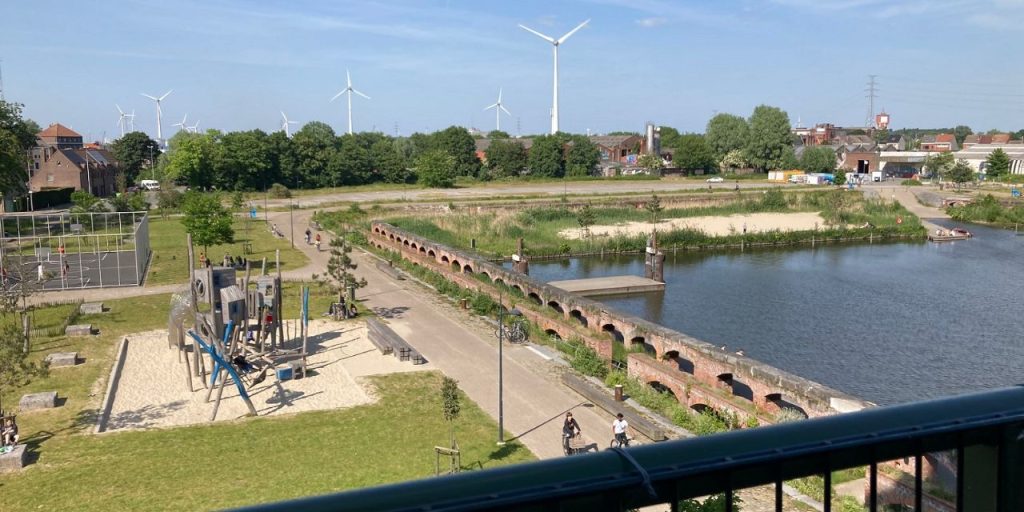
The participants where provided several site visits. One of the visits was directed to Captain Zeppos park, a local park situated in old dockyards in a former harbor area. The park has been open since 2020 providing a green environment for walking, playing and meeting. Original elements have been retained, for example, there is an old harbor crane, where you can climb up and catch the view.
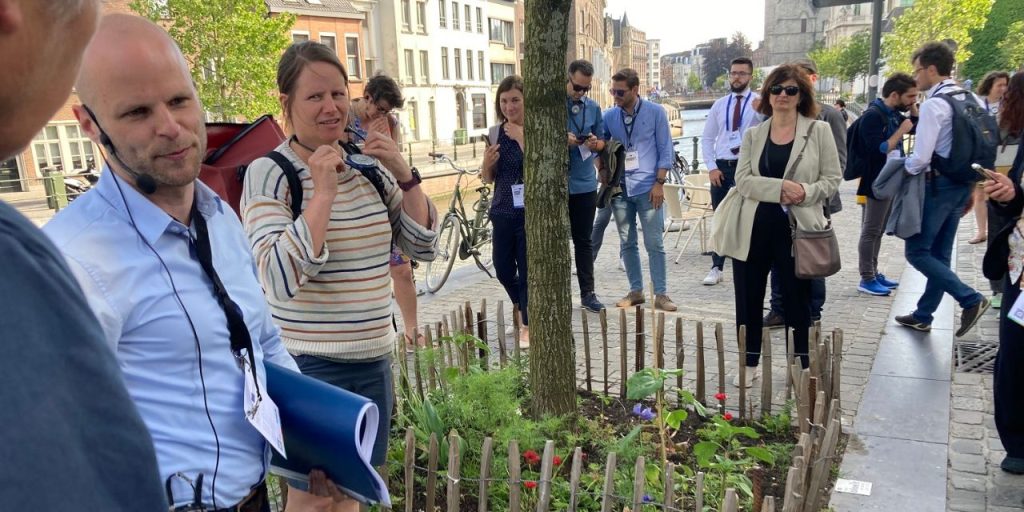
LAB University of Applied Sciences is bringing nature to the urban environment for example in the project Pilot Green, where solutions co-created with citizens will be tested in the neighborhood of Mukkula in the City of Lahti (LAB University of Applied Sciences. 2023). Link to PilotGreen website.
Author
Susanna Vanhamäki works as chief specialist in circular economy at LAB and is actively involved in the Interreg Europe community.
References
Beyaert, T. 2023. Presentation on Captain Zeppos park at “Rethinking local policies – Bringing back nature to the city” on 31 May 2023. Ghent, Belgium.
LAB University of Applied Sciences. 2023. PilotGreen. Cited 30 Jun 2023. Available at https://lab.fi/en/project/pilotgreen
Liboreiro, J. 2023. Nature Restoration Law survives knife-edge vote in the European Parliament amid right-wing backlash. Euronews. Cited 7 Aug 2023. Available at https://www.euronews.com/my-europe/2023/07/12/nature-restoration-law-survives-knife-edge-vote-in-the-european-parliament-amid-right-wing
Liboreiro, J. & Zsíros, S. 2023. MEPs of environment committee vote down the Nature Restoration Law, throwing its survival into doubt. Euronews. Cited 30 Jun 2023. Available at https://www.euronews.com/my-europe/2023/06/27/meps-vote-down-the-nature-restoration-law-throwing-its-survival-into-doubt
Proposal for a REGULATION OF THE EUROPEAN PARLIAMENT AND OF THE COUNCIL on nature restoration COM/2022/304 final. European Commission. Cited 30 Jun 2023. Available at https://eur-lex.europa.eu/legal-content/EN/TXT/?uri=CELEX%3A52022PC0304
Links
Link 1. LAB University of Applied Sciences. 2023. PilotGreen. Cited 30 Jun 2023. Available at https://lab.fi/en/project/pilotgreen

